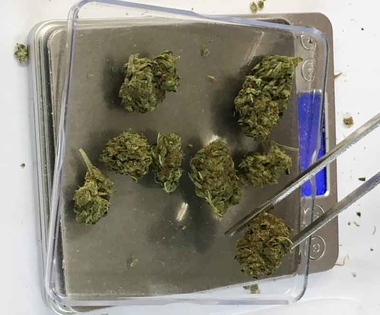Oklahoma medical cannabis update

By a vote of 43-5, the Oklahoma medical marijuana Unity Bill passed the state Senate Monday and was sent to Gov. Stitt for signature on Tuesday, March 12. The bill passed the House of Representatives by a vote of 93-5 in late February.
The Unity Bill (HB2612) sets up regulation of Oklahoma’s booming medical marijuana industry after voters overwhelmingly passed SQ788 in June 2018, legalizing medical cannabis in one of the most conservative states in the nation.
The bill was the product of working group between Representatives and Senator to put in place a regulatory structure for administration of the fledgling industry. SQ 788 contained almost no regulatory provisions, which then required the legislature to act.
The bill provides structure to testing product for THC content, pesticides and potential contaminants in the cannabis.
One section of the law lays out the rights of medical marijuana patient license holders. It prohibits counties and cities from infringing on rights outlined in SQ788. It also says that patients would not be denied the right to own, purchase or possess firearms because they have a pot license.
Another provision prevents an employer’s refusal to hire, discipline or discharge an applicant or employee solely based on possession of a medical marijuana license or a positive test for marijuana unless the medical marijuana was consumed at work or the position was a “safety-sensitive job.”
In other developments in the state, the Tulsa School Board was set to pass a policy banning medical cannabis from campuses. Other school districts have reached different conclusions. Oklahoma City Public Schools, for instance, banned possession by employees on campus, but allow the administration of product to students.
The policy says, “Students whose medical condition requires the use of medical marijuana are allowed to access and utilize marijuana in accordance with state law.” School personnel are not allowed to administer the drug, but the district will provide a private location for a caregiver to administer medical marijuana to students while at school.
Nationally, politicians are weighing in on the issue of legalization. Democratic candidates who have endorsed legalization include Senators Corey Booker, Kamala Harris, Kirsten Gillibrand, Elizabeth Warren, Amy Klobuchar and Bernie Sanders
President Donald Trump’s position on legalization is unclear although he has indicated he supports medical marijuana. His former Attorney General, Jeff Sessions was a strong opponent of legalization.
As of March 11, the Oklahoma Medical Marijuana Authority had received over 76 thousand patient license applications and over 4,000 business application. 63,647 patient, 1,109 dispensary, 1,972 grower and 553 processor licenses had been approved. Applications for patient licenses appear to be growing at 5-6 thousand a week.
Product has become widely available, with dispensaries opening across the state. Stores appear to be well stocked, although the price, driven by high demand and slowly developing supply, continues to be higher than in states that have had legal pot for a longer period of time. Prices for flower range from $10 to $20 a gram.
Patients can continue to apply for licenses online at www.omma.ok.gov. The fee is $100 dollars for most users, with a discounted license set at $20 for persons enrolled in Medicare or Medicaid (Sooner Care). Applicants must present a recommendation from a doctor who is board certified. Doctors are typically charging from $100 to $225 for an examination to obtain the recommendation form.
Patients without direct access to a doctor authorized to prepare a recommendation for a patient license now have the option of video conferencing with a doctor who can do so. There are restrictions (for example, Skype is out due to HIPPA privacy regulations) but prospective patients can search online for companies that provide this service.
Sales in the state of medical cannabis were $7.2 million, up nearly three million over sales in January.
Copyright The Gayly – March 12, 2019 @ 3:35 p.m. CDT.





